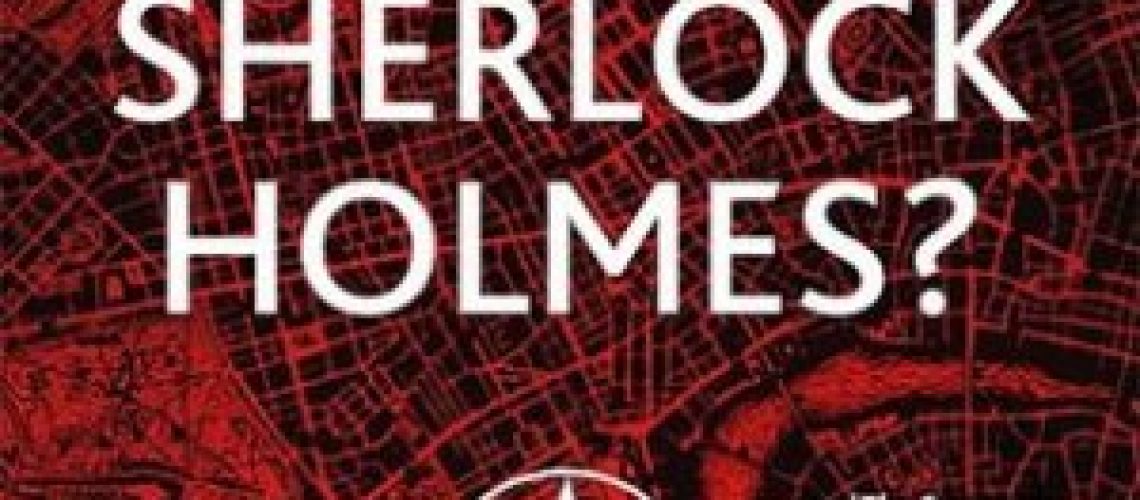From Football through Jack the Ripper, Paul Cornell’s first two Shadow Police novels, London Falling and The Severed Streets, have winningly married the police procedural with events in a secret supernatural world in London that impinge on the ordinary world, in tones of horror and urban fantasy. The Urban Fantasy trope of someone discovering the secret supernatural world is old hat, especially in a city like London. However, it took Paul Cornell to get the idea of not only having police officers make the accidental discovery, but to then have them launch full bore into that world with the tools that made and make them effective in our world — the tools of police investigation.
The third Shadow Police novel, tells you all you need to know with the title: Who Killed Sherlock Holmes? Sherlock Holmes, or worse, his ghost has been murdered.

How do you murder a ghost? And why do you murder a ghost? These are excellent questions that James Quill and his team face. They’ve got a bit of a reputation, now, you see, in the Metropolitan Police department, and weird stuff is brought to them as much as they go out and look for it. And so Qwill and his team are put through the wringer, and through often painful and very believable character change and growth as they pursue this latest mystery — as well as other things. Elements of the supernatural underground of London are becoming more and more aware of Qwill’s team and their impact on their world. Cornell’s world is a dynamic one, and they understandably react to this.
There are some really neat things Cornell does here, too, with how Sherlock Holmes is seen in his universe. His alternate world where his team exists and works has multiple Sherlock Holmes shows on television, just like ours, but the American one goes even further than Elementary in making it a genderflipped Sherlock Holmes in the bargain. The power of celebrity and media and the draw that these powerful representations of Holmes in Cornell’s world have are as potent there as it is in our world. The novel makes it clear the power of Sherlock Holmes is potent indeed.
So how does it do with the Holmesania? The crunchy details of the character, his life and quirks? The minutiae of his abilities, foibles and strengths? I am not a Baker Street Irregular; my connection with Holmes is decent but I am not knowledgeable to every bit of Holmes lore and background. That said, however, there was plenty of broad- and small-bore connections and revelations of Holmesiana I found in the novel. I even learned a thing or three about the character in the reading of the book, as the character of Sherlock Holmes, and his aspects, becomes crucially central to uncovering the mystery and getting to a solution. The novel even gently pokes fun at the speculation regarding Holmes by some of the really in-deep fandom. Not their belief in particular, but their obsession with him. Given the novel explores some aspects of obsession and digging deeply into secrets and the past in modes and contexts other than Holmes (and indeed, the entire series goes down rabbit holes), it makes perfect sense.
Finally, Cornell’s laying down of worldbuilding and constructing his urban fantasy universe continues to impress and delight me. There is a critical, important scene in this novel, one I really am loath to spoil, but it is one the author confirmed for me was there in his mind from the very beginning, and it is actually something that was in an initial draft of the first shadow police novel, London Falling. This scene absolutely clicks in place some of the tumbles of the lock of the past and future of the occult world that he reveals here, and it is a delight to finally have a chance to put some of the crucial pieces together.
In sum, the results and fallout of the novel resonate into the occult world and real world both, with a dangling plot hook tantalizing readers for the next volume. The author is clearly having enormous fun and taking extreme care in building these novels, and the next book looks perhaps to be even better than this best-yet volume, based on that plot hook. I can’t wait. While I can understand the temptation for Holmes fans to start the series here, and Cornell does take pains to allow new readers access to here as an entry point, my recommendation is for readers to start with London Falling, if they want the full experience.







